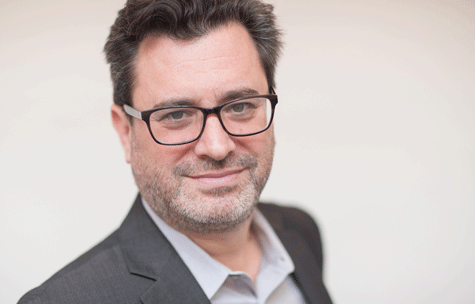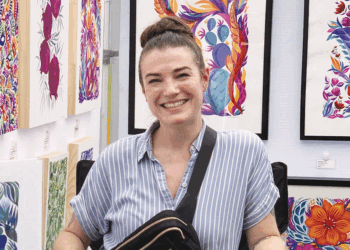By MAX SPARBER
Community News Editor
Humanistic Judaism is currently one of the smaller, and newer, branches of liberal Judaism, having been founded by Reform-trained Rabbi Sherwin Wine in 1963. The movement is growing, and part of its mission is still to introduce itself to the larger Jewish community and explain how it differs from other Jewish movement.

In part, this is why Paul Golin, executive director of the Society for Humanistic Judaism, was recently in town, brought out by Or Emet, the local Humanistic Judaism congregation. He spoke on the topics of “How Do We Envision and Build a Thriving Humanistic/Secular Future?” and “The Light Within Us: What Humanistic Jews Want Their Children to Know About Being Jewish,” both looking at the movement’s future.
In interview with American Jewish World, Golin said that one of the most frequent responses he gets when he mentions his job is “I’ve never heard of you guys before.”
But the second most common response is, “Oh yeah, that kind of describes what I believe.”
He said that one of his primary jobs is to increase awareness that there is a denomination for Jews whose relationship with Judaism is primarily secular. In fact, one of the first steps made by the Humanistic Judaism movement was to rewrite the traditional liturgy, taking the focus away from the supernatural. The traditional liturgy, which had “God at the center,” in Golin’s words, didn’t speak to Jews who “can’t bring themselves to say those words.”
Instead, Humanistic Judaism reflects a “philosophy of life that has no expectation for supernatural intervention,” Golin said. “We’re on our own, it’s up to humanity to make the positive changes in our life.”
Golin pointed out that secularism is common in Judaism. “When you look at surveys, most Jews in America don’t believe in God or the Bible.” (The 2013 Pew survey identified 62 percent of American Jews who say being Jewish is mainly a matter of ancestry and culture.) Many of these Jews nonetheless find meaning in Jewish teachings and Jewish rituals, and Humanistic Judaism provides a place for this.
It is also unique among Jewish movement in that someone can become a member directly from through the Society for Humanistic Judaism without having to go through a synagogue, including a lifetime membership. “They can drive our movement nationally, support what we do and get resources from us directly,” Golin said.
Golin was also in town to discuss a new, pluralistic movement called “Jews for a Secular Democracy,” which seeks to disentangle religion from government. The movement seeks to return the government to the ideals it was founded on, one which would not “favor one religion, or religion over no religion,” according to Golin.
“Our nation has been under siege,” Golin said, describing the rise of explicitly religious influences on government, especially from Fundamentalist Christianity. According to Golin, Jews can uniquely respond to this, both because they have experienced religious-based repression, and because Jews can argue an alternative to laws based in Christian interpretations of scripture.
Golin gives abortion as an example. “Jews have always put the health of the mother ahead of the fetus, there’s always been an accommodation for abortion,” according to Golin. But politicians will often argue against abortion, claiming it goes against “Judeo-Christian values.” Jews are uniquely in a position to argue otherwise.
“We can also make the secular argument,” Golin explained. “We can draw from sources beyond religion, from human civilization.”
***
For more information about Humanistic Judaism, visit the Society for Humanistic Jews at shj.org or Or Emet at oremet.org.




















